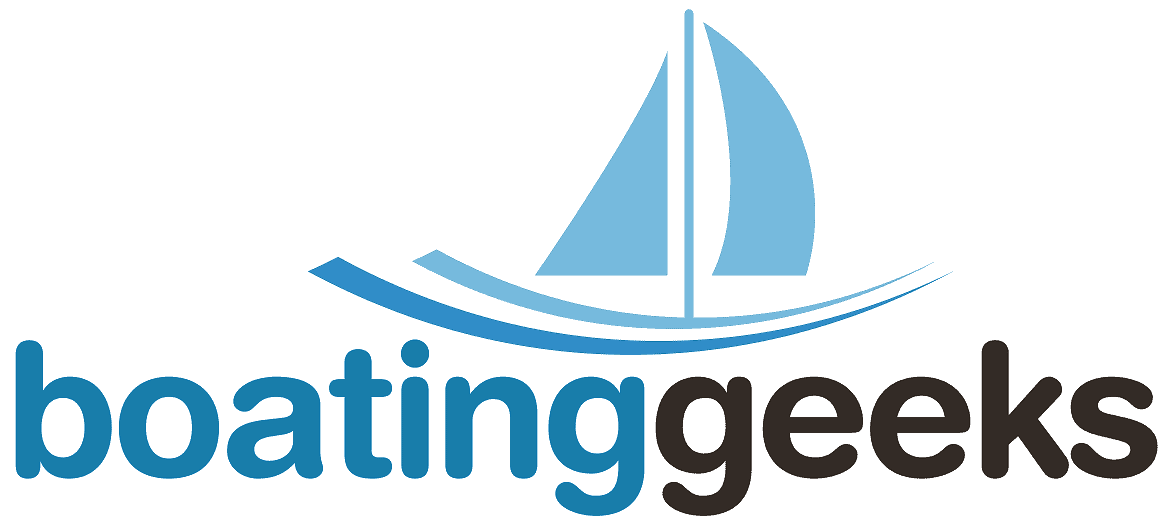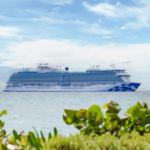You’re probably very excited to own a boat for the first time. Well, that’s natural; however, the excitement should be accompanied by learning some basic first-time boat owner tips. Here are our top 10 tips:
- Keep it Safe
- Maintain and Repair
- Buy Insurance
- Know the Boating Laws in Your Area
- Know Basic Boating Words
- Know How to Control and Drive Your Boat
- Know about Responsible Boating
- Know How to Tow and Store Your Boat
- Avoid Boating During or Before Foul Weather
- Prepare a Checklist for Each Journey
It is very important at the start of your boat ownership journey to learn how to maintain your boat properly and to be able to maximize its use for a long time. I will provide the necessary tips to make this goal come true.
So, what are these First Time Boat Owner Tips that you should know? Continue reading to find out these vital tips and how you can apply them today!
Also, we hope you find the links here useful. We may get a commission if you purchase something through a link on this page, so thank you!
10 First Time Boat Owner Tips
Here are 10 specific tips that I have outlined, gathered from my years of experience as a boat owner.
#1 – Keep It Safe
Safety is #1. It is important to ensure you maintain and keep your boat in top shape to ensure maximum safety at all times for you and the guests on your boat. This doesn’t mean just buying the most expensive accessories, but fully understanding safety and how to keep yourself safe.
For safety purposes, don’t exceed what’s indicated on the capacity limit for the maximum number of passengers. One quick tip for determining capacity – or the allowable number of passengers – is to multiply the length x width and divide the sum by 15.
Click here to see this SUNER POWER 12V Solar Car Battery Charger & Maintainer on Amazon.
The below video gives some other tips that are useful for any first-time boat owner:
#2 – Maintain and Repair
Know the parts of your boat and always keep these parts in top condition (engine, hull, upholstery, plumbing, hinges, and the electrical system). Regularly check them for damages, and repair them immediately – if needed.
Here are a few of the basic tasks:
- Double-check mechanical and electrical parts regularly.
- Flush the boat’s motor with clean, fresh water.
- Prevent the spread of mold by drying the inner areas and opening compartments, including hatches.
- Rinse the sea or river water off your boat thoroughly before storing it.
- Clean the interior properly using recommended boat products.
An example of boat cleaners is the 303 Aerospace Protectant, UV Protectant for Boats. This is easy to use. Simply spray, wipe, and dry your boat. It prevents cracking and fading due to its excellent UV blocking property.
You may also want to try the 303 Marine UV Protectant Spray, which is perfect for all types of surfaces, such as rubber, leather, vinyl, and other materials. It works the same way by spraying and then wiping the boat dry to a perfect matte finish.
Some fueling tips to ensure maximum safety are as follows:
- Fuel portable tanks on the ground and not on the boat, as this may cause accidents.
- When fueling, be sure to ground the nuzzle part before starting to refuel. Close windows and doors and stop the engine.
- Wipe off any fuel leakages.
- After fueling, use a ventilation blower before starting the engine.
- If fuel leaks into the water, clean it up. Violators can be fined and jailed.
- Avoid using products containing chlorine.
- As much as possible, use biodegradable products only.
Click here to see this AKASO EK7000 4K30FPS Action Camera on Amazon.
The below video gives some extra helpful tips for keeping your boat in top shape:
#3 – Buy Insurance
Before heading out, it’s recommended that you buy insurance for yourself and the boat. You can never tell when mishaps can happen. It’s best to be prepared for any eventuality.
Read the scope and limitations of the insurance carefully before committing to a package. Ask relevant questions when you’re uncertain of the terms used in the contract. Keep the document in a safe and secure place.
#4 – Know About the Boating Laws in Your Area
Before setting sail, you have to learn about the boating laws in your area. What’s true for another state/country may not be applicable to your area. A fine or even jail time would be a miserable outcome to the start of your boating journey.
In addition, ensure that the Hull Identification Number (HIN), which is the identification number of the boat, is not altered. If altered or deleted, this could denote legal problems. You have to verify this number against the registration documents to ascertain that the boat has not been stolen or illegally acquired.
Click here to see this Attwood 11834-1 Boater’s Box, Bright Safety Orange on Amazon.
#5 – Know Basic Boating Words
#5 on our list for first time boat owner tips is that you should also learn the basic boating terminology. This is more than a way to sound cool in front of your friends, knowledge of these words can keep you safe.
Often, instructions in your boat’s owner’s manual, also Coast Guard instructions, and other written guides, will include these words. So by knowing them, you can fully comprehend and stay informed.
- Aft – movement towards the rear end of the boat
- Ahead – boat moving forward
- Astern – boat moving backward (reverse)
- Amidships – the central area of a boat or a vessel
- Bow – the front end of the boat
- Forward – movement towards the front end of the boat
- Port- the entire left side of the boat
- Port bow – the boat’s front left
- Port quarter – the boat’s rear left side
- Starboard – the boat’s entire right side; looking forward while standing at the boat’s rear
- Starboard bow – the boat’s front right
- Starboard quarter – the boat’s rear right
- Stern – the boat’s rear end
- Topside – movement from the boat’s lower deck to an upper deck
- Underway – boat’s movement caused by the motor or the wind
If you enroll in a boating class or take some basic lessons, they will include these words to enhance your existing boating skills and gain new ones.
#6 – Know How to Control and Drive Your Boat
Controlling a boat is utterly different from driving a car. So, you should learn by enrolling in boating courses. This is the safest way to do it.
Make sure to practice in open waters that are not crowded by other boats. Go slow and get a feel of how to control your boat. It helps to make friends with other boaters and invite them along for a ride to get some pointers from them while driving your boat.
Never go too fast at the beginning, as tempting as it is. This is a surefire way to lose control and can lead to disaster. Over time, you’ll become more comfortable and increase the speed gradually.
Click here to see this Ironwood Pacific Top-Snapper Tool for Boat Canvas Snaps on Amazon.
#7 – Know About Responsible Boating
Always provide a Float Plan for your friends and family members. This will inform them of your destination, the time of your departure, who is on board with you, and your return date. Include an accurate physical description of your boat to facilitate the search in case of an emergency.
The Float Plan is accomplished to alert people when you don’t return, so they could send a rescue mission if you’re lost somewhere at sea. It helps to think of yourself as a captain of a large cruise ship, not just some tiny insignificant recreational boat. By taking more responsibility, you will become a much safer captain of your vessel.
#8 – Know How to Tow and Store Your Boat
Storing your boat at a harbor may cost you huge fees. This is why some boaters prefer trailering. Attaching your boat to a trailer must be done properly. Make sure that the weight of the hitch is greater than the weight of the boat and that the hitch receiver must be the same size as the hitch ball.
When towing and trailering, you should also consider the angle of the boat ramp, the type of trailer you’re using, and the draft of your boat. Ascertain that the attaching safety chains are interlocked properly so that the boat won’t roll – even when the hitch receiver would fail.
After use, inspect the boat and attach all small items to their designated places. Drain the water from the boat, as well, to ensure that everything is in order. Often, it’s when towing and storing that many boats are damaged.
You can request assistance from a knowledgeable person when launching and docking your boat. You may want to buy a towing membership to make things easier when towing your boat.
As you go about your water adventure, you would surely learn the skills of towing and storing in due course.
To learn more about towing and trailering, check out these videos:
#9 – Avoid Boating During or Before Foul Weather
You must be aware of the weather conditions before you go boating. You should always avoid heading out during or before you hear a call for a storm. Even a lighter storm can be much more fierce out at sea.
Hundreds of boating accidents happen because people had refused to listen to warnings. Don’t be counted as a casualty. Check the weather reports, wait for the storm to pass, and then head out.
#10 – Prepare a Checklist for Each Journey
A good checklist ensures that everything is in order before you leave. The tasks you need to do and the boat parts you need to check must be included in the list. You may want to add the following items too.
- Ziploc bags for cell phones, wallets, keys, and similar gadgets
- Sufficient potable water
- Fire extinguisher
- Distress signal equipment/flare gun
- Life jackets
- Flashlight
- Horn or whistle
- Change of clothes/towels
- Compass/GPS
- Portable WiFi
- Sunscreen/sunblock
- Sunglasses
Conclusion – 10 First Time Boat Owner Tips
In summary, here are our top 10 first time boat owner tips:
- Keep it Safe
- Maintain and Repair
- Buy Insurance
- Know the Boating Laws in Your Area
- Know Basic Boating Words
- Know How to Control and Drive Your Boat
- Know about Responsible Boating
- Know How to Tow and Store Your Boat
- Avoid Boating During or Before Foul Weather
- Prepare a Checklist for Each Journey
This is one of the most significant pointers that I would like to share with you. Enjoy your boating adventure. If you’re doing this for fun and leisure, then make the most out of it. Go out to the water and feel the wind playing on your face and the sun tanning your skin. Be confident that you can do it, and you can.
If you’re doing it for business or for earning a living, then enjoy just the same. If you love what you do, you won’t be working for the rest of your life.
Hopefully, these first time boat owner tips will help you in enjoying your boating adventures for many years to come. Have fun!
Related reading:
How to Launch a Boat [by Yourself or With a Spotter]
What Should Be in an Emergency Kit for a Boat?
















